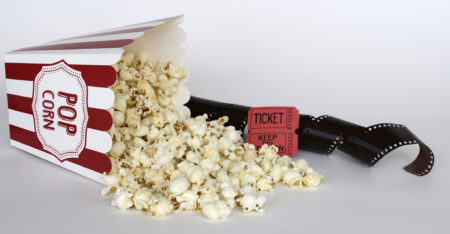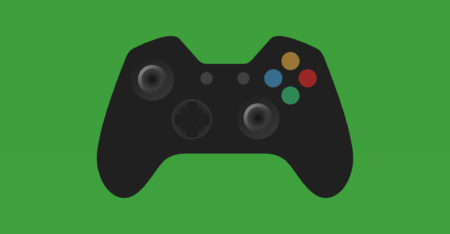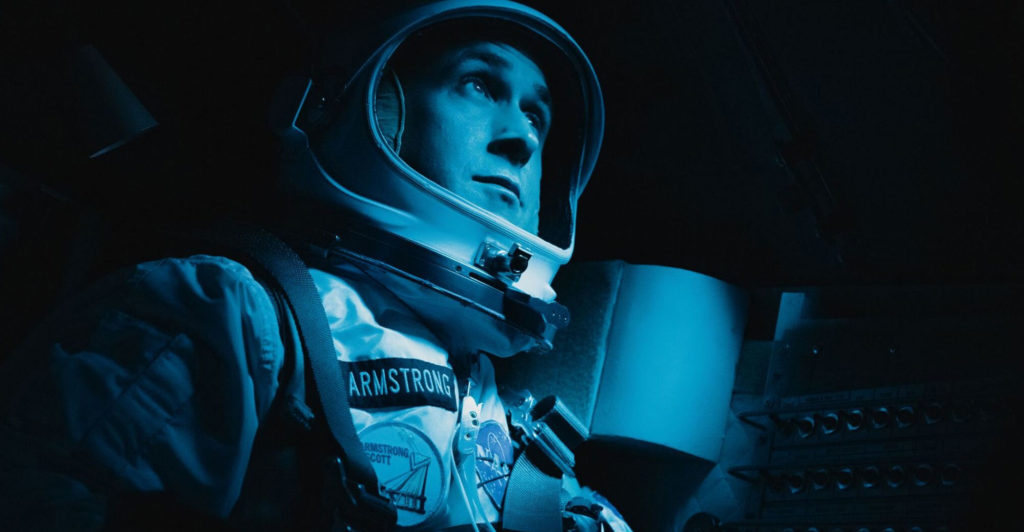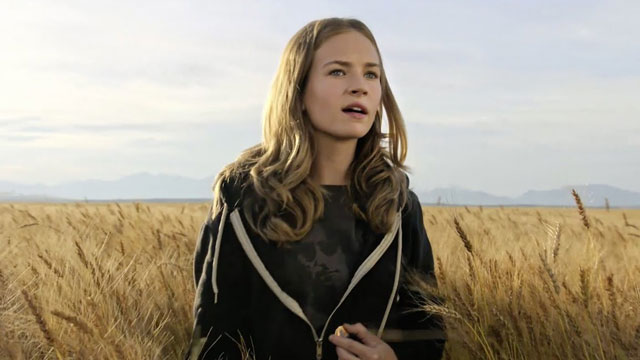
Armageddon has captured the human imagination since the days of the ancient Sumerians, but Tomorrowland director Brad Bird and scriptwriter Damon Lindelof are convinced that our current love for stories about the end of the world could turn into a self-fulfilling prophecy. Hence, their new film, which is a sort of Interstellar-lite for the Disney family audience.
It’s a well-meaning rebuff to the sermons about dystopia and climate catastrophe in schools and news media and to popular culture’s tales of nuclear annihilation, zombie apocalypse and genocidal artificial intelligences. The future, the filmmakers argue with the subtlety of Pollyanna with a megaphone, isn’t what it used to be. It’s only bleak, because we feed our fears for a terrifying destiny rather than building on our hopes for a better one.
The early minutes of Tomorrowland are promising. We meet young dreamer Frank Walker (Thomas Robinson), who has brought his prototype for a jetpack to the 1964 World’s Fair in New York. An encounter with Athena (Raffey Cassidy) — a bright girl with a slightly awkward bearing — exposes him to a future world of invention and potential.
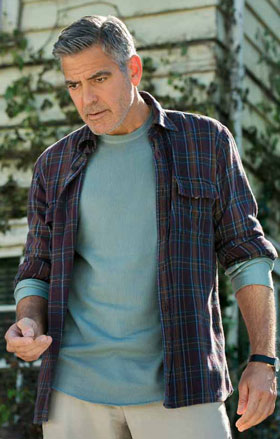
Frank grows into a grizzled and despondent George Clooney, exiled from Tomorrowland for reasons that become clear as the film goes on. Meanwhile, his path converges in the 2000s with that of Casey Newton (Under the Dome’s Britt Robertson), a teenage science whiz and daughter to a Nasa engineer. Much like Lindelof’s Lost and Prometheus, the rest of the film is about opening up a mystery box to see what’s inside.
And much like those Lindelof works, Tomorrowland’s reveal is nowhere near as interesting as the wrapping. The first two acts are intriguing, and the passion for which Lindelof and Bird argue in favour of the dreamers and inventors over the doomsayers is contagious. But by the third act, it has devolved into a series of meaningless chases before hectoring the audience with heavy-handed speechifying.
The weaknesses of Lindelof’s script rankle because there’s so much to enjoy in Tomorrowland, especially when it’s pure Brad Bird. Taking its cue from the World Fair’s celebration of progress and innovation, Tomorrowland conjures up a world of gleaming towers, people with jetpacks zipping through crystalline skies, and casual space travel to destinations light years away.
Its clean production design — Jetsons-like retro-futurism meets an Apple iStore — is as striking in its own way as the dusty, desolate tomorrow George Miller envisions in Mad Max: Fury Road. Tomorrowland, named after a Disney theme park attraction, captures the utopian spirit of Walt Disney’s Epcot, the city of tomorrow he was trying to build in Florida. (At times, it feels a bit like on overlong promo for Disney’s theme parks and movie franchises.) In its best moments, it also channels the heart and inventiveness of Spielberg in his 1980s prime.
Bird’s action sequences are terrific, as madcap as the cartoon freneticism of The Incredibles and as spellbinding as the tense sequences in Mission Impossible: Ghost Protocol. They’re composed with masterful framing and movement, never losing sight of the characters in the centre of the action. Bird’s warm humour — smart without the lazy snark of so many filmmakers today — is also a treat.
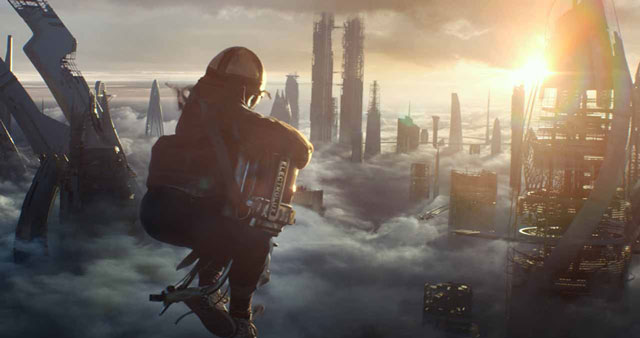
Bird’s characters — the rat that wants to become a chef in Ratatouille, Mr Incredible who refuses to accept middle-aged mediocrity, even The Iron Giant’s pacifist war robot — have always been dreamers of exceptional talent. Robertson’s curious, determined and irrepressibly sunny Casey is the real revelation here, bringing an easy likeability to her character. Clooney is okay, if a little glib and not exactly stretching himself beyond type.
Yet despite its merits, Tomorrowland isn’t as convincing, as say, Mad Max: Fury Road. That’s not because the audience embraces doom, but because there’s something emotionally and intellectually unsatisfying in its vision for the future. Perhaps it’s the fact that social and technological progress — unlike US presidential campaigns — is won through hard effort rather than by the power of positive thinking. Tomorrowland is sweet and entertaining, but never completely persuasive.
- Lead more: Tomorrowland, Disney and their links to the 1964-65 World’s Fair
- Read more reviews by Lance Harris


